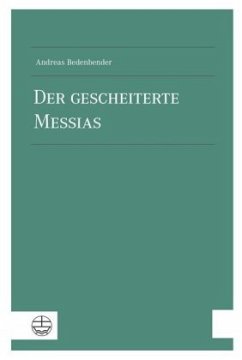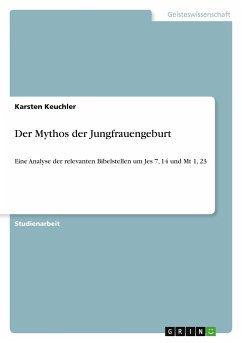Das Markusevangelium bietet eine Geschichte, die auf zwei Ebenen angesiedelt ist. Zum einen hören wir hier das »Evangelium von Jesus Christus, dem Sohn Gottes«, zum anderen handelt der Text vom Jüdischen Krieg, der im Jahr 70 mit der Zerstörung Jerusalems endete, und von den Fragen, mit denen sich die christliche Verkündigung nun konfrontiert sah: Wie war es möglich, dass diese Katastrophe hatte geschehen können - der Evangeliumsbotschaft vom Heilswirken Jesu und von der Nähe des Gottesreiches zum Trotz? Und wie ließ sich Jesus, der auferstandene Messias, so verkünden, dass die ganz und gar unerlöste Wirklichkeit die Worte nicht Lügen strafte? Markus geht einen Weg, den vor ihm vermutlich noch niemand beschritten hat: Er erzählt die Geschichte Jesu als die Geschichte eines gescheiterten Messias.[The Failed Messiah]The Gospel of Mark tells a two-level story. While presenting explicitly »the gospel of Jesus Christ, the son of God«, Mark also deals with the Jewish war, which ended in 70 c.e. with the destruction of Jerusalem, and with the questions it posed for the followers of Jesus: How could this happen - in spite of the Good News about the salvation brought by Jesus and about the imminent arrival of the reign of God? And how to proclaim the message of Jesus, the Messiah raised from the dead, without being gainsaid by a utterly non-messianic reality? Faced by these questions, Mark takes a path which has been taken, probably, never before: He tells the story of Jesus as the story of a failed Messiah.
Bitte wählen Sie Ihr Anliegen aus.
Rechnungen
Retourenschein anfordern
Bestellstatus
Storno








